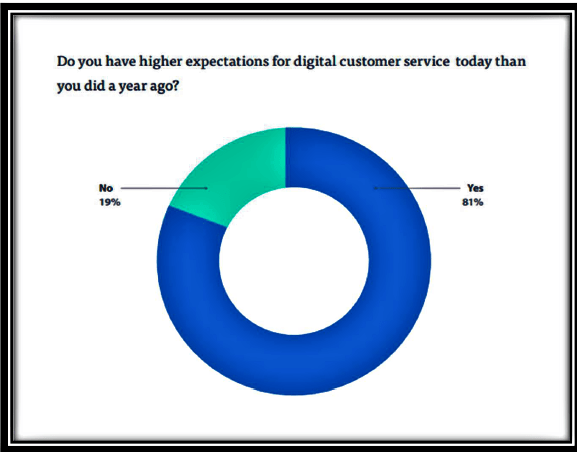Overview :
Communication skills have evolved in the 21st century. Read what new skills you need today.

Communication skills for digital dinosaurs
Communication in the 20th century was relatively easy. At school you learnt to read and write, and things like the telephone and basic computer literacy were relatively simple to master. But then The Digital Age and Social Media exploded into our lives and our communication landscape changed forever.
Many of us have an older parent or relative who battles with computer navigation. These poor people can end up terrified, paranoid and digitally isolated. They sadly have not kept up with the Digital Tribe and the changing times, and often end up fairly marginalised in our 21st century digital world. The ‘digital dinosaurs’ are totally overwhelmed by our digital world.
Younger generations, on the other hand, have been fortunate enough to have grown up and educated in the fast-expanding digital world. Youngsters are luckily born surfing the growing Digital wave. The young pick up digital dynamics and digital communication skills very easily: they master mobile phones by the age of three, and they can outsmart granny on Facebook by the age of five.
Digital communication skills have revolutionised and changed the rules of more traditional communication – both personally and professionally.
Here are some top communication tips to help YOU to thrive and communicate effectively in our Digital universe.
There are two types of digital skills that must be mastered: digital hard skills and digital soft communication skills.
Hard skills are the basic practical skills, like how to effectively navigate and use social media and digital platforms like Facebook, Twitter, LinkedIn, Instagram. Hard digital skills can include how to use software image editing software, video conferencing, etc. These are essential basic hard digital skills, and they are relatively easy to master with a bit of logic and practice. Knowing how the various digital platforms work is a fantastic beginning to start building your digital self-confidence.
Soft skills are the more complex and less tangible digital communication skills that are needed for you to communicate confidently, clearly and successfully with our various online contacts and stakeholders. These soft communication skills are usually the harder skills to master, and they usually require coaching support from good digital communication skills training programmes.
Learn to become digitally strategic
The first question you need to ask yourself is what you are using the digital world for. Are your digital comms purely for social connectivity, or are they for business? With most people nowadays, it is usually for both.
If you run your own business and use digital to communicate with your clients, you need to be far more focused and strategic. Like with any business project or business venture, research, planning and a good marketing strategy is essential.
With your digital communication strategy, it is useful to ask yourself the following questions:
- What are your digital goals?
- What are your key digital messages?
- Who is your market, and which is the best digital platform to reach out to them with?
- How can you capture their attention online, and achieve their buy in?

The ability to learn and work independently
The digital world has opened the whole world of knowledge and resources to us. But this also means that you need to know where and how to find all this wonderful knowledge. ‘Me and my pc’ has become the primary relationship in most 21st century lives. Digital has become the way we conduct our relationships, engage with our world, and conduct our business. The digital world has become the primary communication medium to engage with life.
You can’t always be online
It’s very unhealthy for anyone to be constantly online. Digital addictions are a recipe for poor performance and tragic burnout. We all need to learn to create some healthy ‘digital boundaries’ in our lives. Consider this: Bill and Melinda Gates enforce daily digital boundaries with their own children.
Developing your digital soft skills
One of the miracles of The Digital Age is that humanity is now writing and communicating far more than ever before in our whole social history. That is an amazing fact!
There are however new rules and dynamics for writing digitally. We need to learn how to communicate far more clearly, more succinctly and more convincingly than ever before. Our blogs are competing with 4 million other blogs uploaded daily on the internet. Your clients download hundreds of emails into their inboxes every day. You need to learn how to capture their attention and write clearly and convincingly enough for them to actually read your e-mails and take action.
Not only this, you also need to learn how to engage and build relationships online. If you are an entrepreneur or brand ambassador, it is important to learn how to build digital platforms and audiences, and how to encourage digital interaction.
If you want to become a digital influencer, or perhaps a 21st century leader, you need to learn how to stand out above millions of other digital hopefuls and build loyal followings for your digital brand.
The difference between real time and digital communication
Have you ever considered that when you communicate digitally, you have far fewer communication resources at your disposal than when you are communicating face to face? When we communicate digitally we are eliminating so many powerful communication tools like body language, hand gestures, eye contact, posture and lively facial expressions. All these live body language signallers help you to have presence and make an impact.
When communicating digitally, we lose so many of our powerful verbal communication tools. Most people communicate digitally only using written communication, and thus lost the impact of their voices, tone of voice, as well as the impact of their personalities.
Well over 95% of people are just too terrified to post LIVE videos of themselves. This is interestingly the most powerful digital communication tool and it generally receives great feedback.
Conclusion
You have probably lived through the first tweet, the first blog and the first podcast. There are likely to be thousands more digital firsts in your life. Now, here’s a secret: Every successful communicator was once a pioneer, just like you. Digital communication may not be easy for everyone, but these are skills that we can teach you.
By enrolling on a digital communication skills programme you can learn how to communicate information digitally, and how to communicate effectively. This will build your self-confidence and improve your 21st century communication skills. You will also become a better communicator in the workplace.
Becoming a confident and accomplished communicator in today’s digital world does means stepping outside your comfort zone, but the confidence and rewards it brings are truly worth it.
For more information on digital communication skills courses, contact Communication Guru John French at john@johnfrench.co.za
Here is a link to Communication Guru, John French’s LinkedIn profile: https://www.linkedin.com/in/john-french-73499939/


